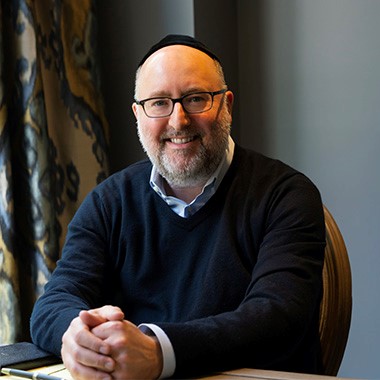
This article was previously published in 2020.
The portion Vayigash begins with what seems to be a confrontation between Yehuda and Joseph. Yehuda at this point believes Joseph is simply the second in command to the Pharaoh, and in speaking to him, says these interesting words: “May I speak words in your ears.” This specification of speaking into the ears is strange, because whenever we speak to someone, they are hearing through their ears. So, what is the purpose of Yehuda mentioning the fact that as he speaks, he is going to be speaking to the ears of Joseph? The kabbalists explain this is a very important understanding that is also true for most of us, if not all of us.
“May I speak words in your ears.”
Before we begin studying and understanding, we are basically clueless about why things are happening, what we’re supposed to do about it, how we are supposed to change, and so forth. There are so many questions unanswered. Then a person begins his spiritual studies, and maybe a little bit of his spiritual work, and begins to get answers; he understands why things are happening, how he needs to change, and specifically what areas he needs to change and focus on. And most people believe this is a great part of the spiritual process, but the reality is that is only a tiny part of it.
Knowing what areas we need to work on and what parts of ourselves we need to change is a very small part of the work. That is why we use the term “spiritual practice.” We cannot, at least in our time, hear something or understand something and then have it happen, no matter how much we desire it. This is a truth; we may need to hear something a thousand times, and practice it ten thousand times until it actually becomes change, until we change through it, until we actually become a different person through it. But, why is that true?
There is a section in the Talmud that uses the word lev, heart, to speak about the capacity of any individual to be able to not only retain knowledge, but retain change. And the Talmud wants to list how the world has developed into a state where fewer and fewer people have the capacity to retain change. It says, “The heart of the sages, of the great souls that came before, was like the size of a great and large hall. And the capacity of the heart of those who came in the later generations is like the size of a room.” Then, this is 2000 years ago, it says, “And our heart is as big as the size of a pin.”
So, it says the first generations, their heart was the size of a large hall. The next generations, their heart was the size of a room, and that our generation’s heart is the size of a pin. Then it asks, “Who are these people I am referring to? Who are these souls, when I am talking about the first souls, the first great souls and the later souls, the people previously whose heart was the size of a large hall? I am referring to Rav Akiva, whose heart and capacity to retain change was the size of a large hall. And my heart, my capacity to retain change, is the size of a pin.”
“The size of our hearts has deteriorated over time.”
The size of our hearts has deteriorated over time. That is a little bit sad, but it is important to know this, because this changes, hopefully, the way we view the intensity with which we have to practice the spiritual work. And it explains why. If you went to Rav Akiva and said only once, “You have a problem with anger,” which we know he did, his heart was so wide and his capacity to retain that knowledge so strong, that he was changed in a moment. But how many times do we have to tell ourselves something to change? Thousands, which is neither good nor bad, it is just a fact. Therefore, if we understand this, we come to realize it is crazy for us to think that hearing something a hundred times is enough to change us.
It is the reality of our generation, and of who we are, that our heart, our capacity to retain knowledge for change, is very small. That is why we have to keep studying, practicing, and pushing for the same thing again and again. And I have to say, the most exciting thing for me is when an individual comes to this knowledge that it is not about gaining more understanding of ourselves, or about gaining some more wisdom, but that it is about practicing the same idea we already know again and again. It is for someone to say to themselves, “I knew ten years ago that I have a problem with anger and with being reactive. But I keep focusing on it, because my heart is small. My capacity to retain knowledge of change is small. And so, I need my teachers, friends, and myself to keep reminding me of the same thing over and over again.”
Because we retain more understanding and knowledge that will not lead to change, every single time you are told, every single time you understand, every single time you receive wisdom, remember that you retain only a tiny fraction of it for change. For the purposes of change, the heart is small, and therefore, there needs to be a constant practice and remembrance.